Premium Only Content
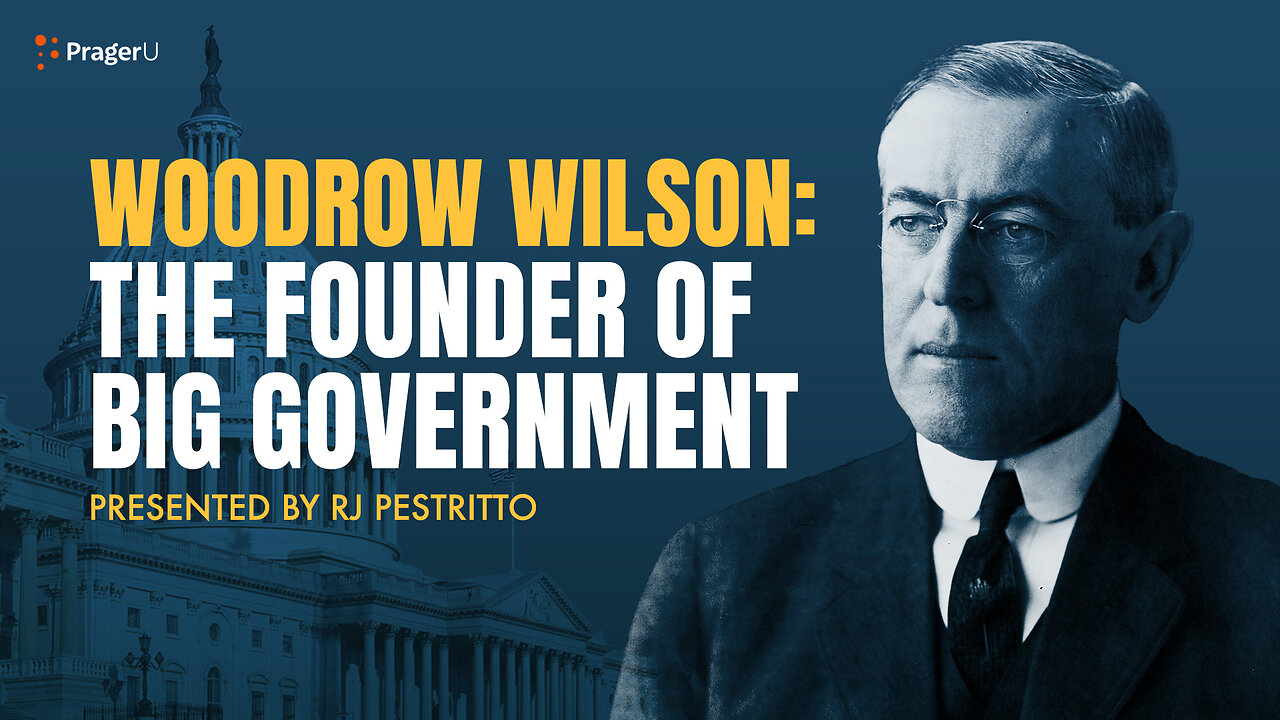
Woodrow Wilson: The Founder of Big Government | 5 Minute Video
As America’s 28th president, Woodrow Wilson greatly expanded the size and scope of the federal government. How did he do it, and why? RJ Pestritto, professor of politics at Hillsdale College, answers this important question.
📲 Download the FREE PragerU app: https://prageru.onelink.me/3bas/vgyxvm79
Script:
Few American leaders have stirred more controversy than Woodrow Wilson, the 28th president of the United States. Many admire him, many don’t. But one point on which everyone agrees is his profound impact on American history.
The reasons for the controversy and the impact are one and the same.
Wilson and his generation of leaders were the first to challenge the founding principles of the country. It’s not an exaggeration to say that Wilson turned them upside down.
As expressed in the Declaration of Independence, the Founders believed that individuals are born with certain unalienable rights. And they framed the Constitution to protect those rights.
For Wilson, the time of individual rights had passed. In his view, 18th-century America had little relevance to early 20th-century America. The country, now much bigger and more complex, required the guidance of a benevolent government.
America had literally outgrown the Founders.
Wilson’s philosophy — of which he was a leading proponent — was known as Progressivism. And Wilson proudly called himself a Progressive.
Where did Wilson get these ideas? From the place where he spent most of his life: the halls of academia. He was the only US president to come into office with a Ph.D.
Born in Staunton, Virginia on December 28, 1856, Woodrow Wilson had two ambitions: to teach and to write. He received his undergraduate degree from Princeton with the vague notion that he would become a lawyer. But like another, earlier president, John Quincy Adams, Wilson found the law much too arid for his active mind. To the chagrin of his father, he returned to academia to get an advanced degree at Johns Hopkins.
There his thinking took form. He was deeply influenced by Charles Darwin’s new theory of evolution. At Hopkins this theory was applied to government: just as a species must adapt — or progress — to survive, so must a government. Not to recognize this would be to hold America back, to stunt its growth, or, to close the metaphor, risk extinction.
This was one of the major themes in Wilson’s Ph.D. thesis, which he turned into an influential book titled “Congressional Government: A Study in American Politics.” This book launched his academic career, which culminated in his appointment as president of Princeton in 1902.
As happy as he was at Princeton, Wilson longed to put his progressive ideas to the test, hence his move into politics. There his rise was truly meteoric. In 1910, he ran successfully for governor of New Jersey as a Democrat. Once in office, he surprised everyone with his impressive political skills, scoring one policy victory after another, while also fighting New Jersey’s notoriously corrupt political machine.
Reforming workers’ compensation, limiting how much money corporations could spend on elections, and putting utilities under state supervision were only three of the progressive ideas he pushed through the legislature. His success attracted the attention of Progressives nationwide. In 1912, the Democratic Party, desperate to end a sixteen-year losing streak, turned to Wilson as its nominee.
The chances of Wilson winning that election against a united Republican Party were slim, but the electoral calculus changed dramatically when former Republican president Teddy Roosevelt decided to run against his own hand-picked successor, the current Republican President, William Taft.
TR’s campaign was the most successful third-party run in American history, but all it accomplished was to split the Republicans and give Wilson an easy victory. He won with 42% of the popular vote, the lowest percentage since Lincoln.
In just three years, Wilson had risen from president of Princeton to President of the United States.
As he did as governor, he immediately went to work.
See the rest: https://l.prageru.com/3vGqGyA
Subscribe to PragerU Kids ➡️ (https://www.youtube.com/@PragerUKids)
Subscribe to Real Talk with Marissa Streit ➡️ (https://www.youtube.com/@realtalkwith...)
Subscribe to PragerU Shorts ➡️ (https://www.youtube.com/@PragerUShorts)
Follow PragerU on social media!
Instagram ➡️ (https://www.instagram.com/prageru/)
Twitter ➡️ (https://twitter.com/prageru)
Facebook ➡️ (https://www.facebook.com/prageru/)
-
 2:13
2:13
PragerU
4 days agoDid Pre-Covid Corruption fuel the vaccine push? | Short Clips | PragerU
7.24K3 -
 1:05:47
1:05:47
Donald Trump Jr.
16 hours agoMexico Sends Troops to Border, Plus USAid Scam Exposed, Live with Brooke Goldstein & Rep Brian Mast | TRIGGERED Ep.213
248K308 -
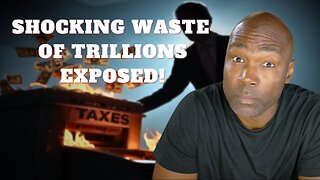 9:26
9:26
Rethinking the Dollar
12 hours agoUnbelievable Government Waste: 5 Outrageous Biden-Era Spending Sprees
105K19 -
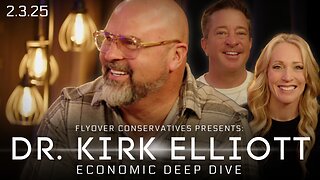 2:37:43
2:37:43
Flyover Conservatives
1 day agoDR. KIRK ELLIOTT | Deep Dive: Tariffs, Tech, and Total Economic Warfare – Who Wins and Who Loses? | In Studio - FOC Show
86.8K4 -
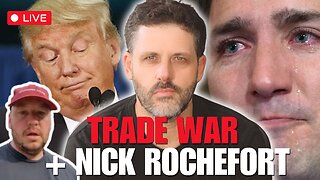 3:12:37
3:12:37
Danny Polishchuk
14 hours agoTariffs and Trade Wars + Nick Rochefort | Low Value Mail #136
64.1K3 -
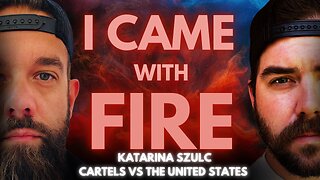 2:04:40
2:04:40
I_Came_With_Fire_Podcast
16 hours agoCartels vs The United States, Fentanyls 2 Front WAR, and FTOs
37.7K2 -
 4:54
4:54
CryptoWrld
17 hours ago $2.04 earnedCrypto Startup Launches Tokenized US Treasury Bonds
35.4K5 -
 2:29:15
2:29:15
We Like Shooting
23 hours ago $1.34 earnedWe Like Shooting 596 (Gun Podcast)
25.9K -
 54:43
54:43
Kimberly Guilfoyle
16 hours agoThe Trump Effect: Mexico Folds, Live with Dinesh D’Souza & Chuck DeVore | Ep.193
109K36 -
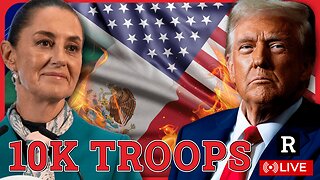 1:20:47
1:20:47
Redacted News
15 hours agoMexico CAVES to Trump over tariffs, USAID Shutdown, & Zelensky loses $200 billion | Redacted Live
192K475